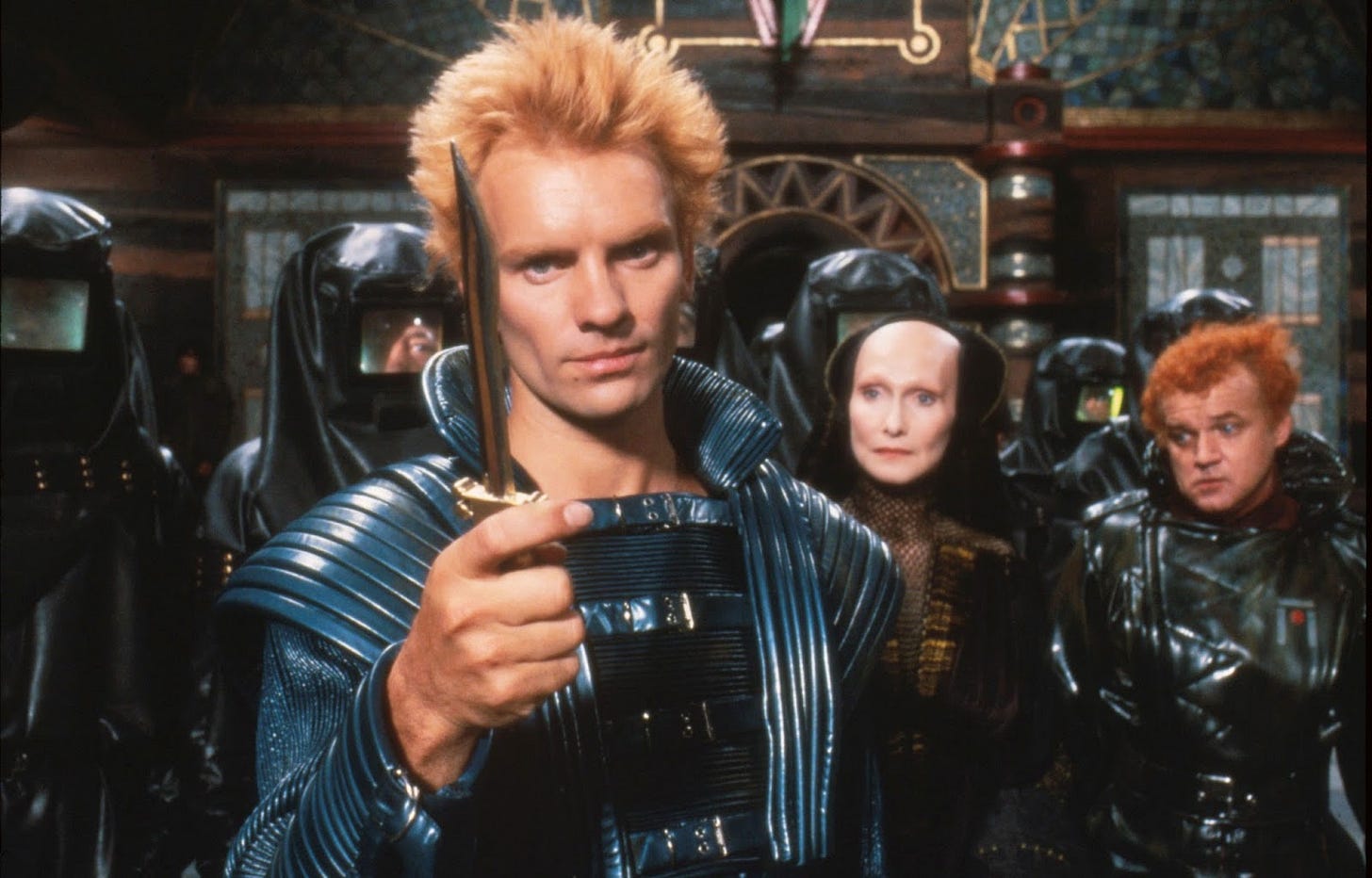The Failure of Dune '84 Saved David Lynch's Career
How David Lynch Came Back From His Greatest Failure
Denis Villeneuve's two-parter Dune adaptation is already being hailed as among the definitive cinematic achievements of the 2020s, which stands in contrast to the previous Dune adaptation which famously ended in disaster. That is, even if it’s developed a cult following of its own for its eccentricities thanks to director David Lynch, a beloved surrealist known for the abstract chiller Eraserhead and the enigmatic but engrossing Mulholland Drive. Unfortunately for Lynch, Dune was rejected by critics, audiences, and fans en masse and is widely considered to be a black mark on his legacy.
Unfortunately. Or so it would seem. Because the failure of Dune needs to be recontextualized: it didn’t nearly doom Lynch’s career. Rather, it saved it, and only ended up emboldening his voice as an auteur. Only his third feature, Dune was a project that Lynch was uncomfortable with. He hadn’t even heard of the book and thought producer Dino De Laurentis had said “June” when he first approached the young Lynch.
It’s hard to understand how Lynch was swayed to accept the job considering that he hadn’t worked on a project of such scale, or one based on source material that he wasn’t familiar with. He'd turn down the opportunity to direct Return of the Jedi because he didn't see himself helming a science-fiction epic. Probably because even just the sight of the Wookie costumes famously gave Lynch an intense migraine. But he decided to ignore his instincts and signed on to direct not only one Dune movie but potentially sequels.
Imagine for a second that Lynch’s Dune had been a runaway success and that Lynch’s career had been tied to this property for years to come. Denis Villeneuve has spent the better part of a decade just bringing the first Dune novel to the screen and is prospectively attempting to adapt the novel’s sequel, Dune: Messiah. David Lynch could have effectively signed away a critical stage of his career to an I.P. he didn’t identify with for a producer who reigned over his productions with tyrannical scrutiny. In Lynch’s own words, the production was a “nightmare” as he was forced to condense the infamously dense novel into a runtime of only 2 hours and 16 minutes.
Instead, the critical and commercial rejection of his Dune put an end to that and ensured that David Lynch wouldn’t handle any space operas again. If anything, the “nightmare” production of Dune only validated his initial instincts in turning down Return of the Jedi. So while Lynch was depressed at the result and continues to say that making the film is his biggest regret, there's an important lesson to take away. After Dune's failure, David Lynch decided to do an artistic U-Turn and embarked on a project that was his own radical vision: Blue Velvet. One of Lynch’s most esteemed works, Blue Velvet was a direct product of the Dune fiasco. As Lynch explained, “After Dune I was down so far that anything was up! So it was just a euphoria. And when you work with that kind of feeling, you can take chances. You can experiment."
With Blue Velvet's runaway success, David Lynch went from potentially being chained to Dino De Laurentis' Dune franchise to being the premiere avant-garde director of American cinema. We could’ve been robbed of Mulholland Drive or Lost Highway. Who knows if Lynch would’ve had the bandwidth to oversee the creation of Twin Peaks, its cult favorite spin-off Fire Walk With Me, or its fantastic sequel series Twin Peaks: The Return.
Not to mention that Dune ‘84 also marked the first collaboration between Lynch and his muse, Kyle MacLachlan, who starred as Paul Atreides. The Scorsese-De Niro of Weirdo Cinema, Lynch and MacLachlan would become a dynamic duo in not only their theatrical collaborations but even more famously with Twin Peaks.
Dune ‘84 provides many lessons, one of which would be that directing Eraserhead probably doesn’t give you the qualifications to adapt one of the most epic texts in the science-fiction canon. It also reminds us of the opportunities that failure provides and the possible entrapment of success. David Lynch has long disowned Dune and considers it to be his only true failure. It’s hard to blame him for his disdain, but I hope that fans and haters alike can remember Dune ‘84 as not the movie that nearly ended his career, but the one that saved it.





Unfortunately for David Lynch and myself, there are no diners on Arrakis